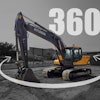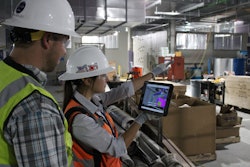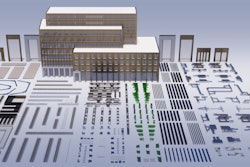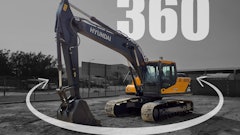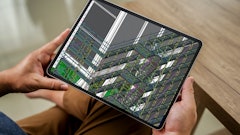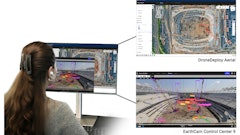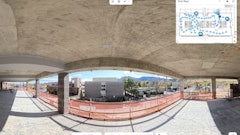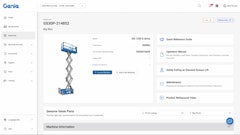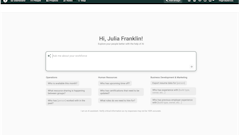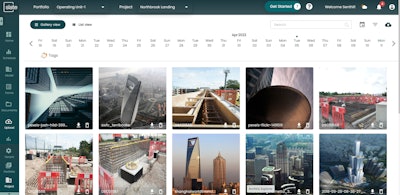
Slate Technologies, a Pleasanton, Cal.-based artificial intelligence (AI) software platform for the construction industry, announced in late April 2022 its acquisition of Splash Modular, a North Carolina-based software designer for the industrialized construction & design for manufacturing and assembly (DFMA).
As a result of the acquisition, Splash will operate as part of Slate Technologies.
Splash was built specifically to facilitate industrialized construction (IC). Its software connects design teams in the construction process with the manufacturing, assembly and supply chain stakeholders, bringing all data into a parametric design file. This helps general contractors identify, integrate, and manage IC solutions and suppliers while reducing the cost and risk of projects, decreasing building time, and improving quality.
Slate in March launched a digital assistant for the construction industry, leveraging AI and machine learning to help contractors and designers make better decisions based on multiple criteria from throughout the business. Splash focused its efforts on industrialized construction (IR), which goes beyond offsite or modular fabrication of portions of a project, bringing to bear industrial engineering principles, standardized design and automation. Splash came to market with its software tool, RIVEIA, a cloud-based BIM-integrated software platform and marketplace bridging data flow between pre-construction, offsite construction facilities and supply chain partners. The software facilities innovative approaches to construction including mass customization and autonomous project delivery through a two-way data flow between project stakeholders to ensure constructability and manufacturability.
Former Splash Modular CEO and current Slate Technologies Vice President and Head of Industrialized Construction Joel Hutchines briefed ForConstructionPros in the days after the announcement. He relayed out Splash Modular had had about four employees and the combined Slate Technologies now employs 50, and is just coming out of stealth mode. The company just brought on a vice president of customer success and is preparing for a full-scale market launch after working closely with a group of global beta customers.
“Splash is focused on getting data in the hands of a designer to help them productize their processes,” Hutchines said. “Slate is really more focused on project manager and the general contractor. We are looking more at the data getting into the hands of the designer and using this scripting as a service model we have developed to build out a tool modular and offsite suppliers can use to productize their process and build value to generals.”
Productization of Construction
While Splash Modular and Slate are early-stage companies and their combined effect on the market will only be felt in the future, offsite and modular construction are increasing in popularity, particularly in regions where regulations and practical requirements push the trend along, including in the United Kingdom.
“We are seeing more and more building with industrialized construction,” Hutchines said. “As that has evolved in that sector, general contractors are more and more willing to leverage modular suppliers.
"But first, designers need to design for it. What we set out to do is we automate the whole process of design—use a configurator to help designers design around what can be achieved. We are automating the design for the suppliers with assistance from AI to help identify opportunities to use a given supplier or methodology. Our software is built around work packages and tasks and can understand how opportunities to use these break down around a task level.”
By focusing on design, Slate can now use the Splash Modular approach to get modular component manufacturers a seat at the design table—without which the default process of designing for construction on-site will not change.
The biggest problem with industrialized construction is that you have to get early into the contract environment,” Hutchines said. “We can use automated process to streamline that, looking at quantified benefits in terms of time on site, people on site and time saved based on defects. Our technology supports decisions based on multiple criteria.”
The two companies have already harmonized their product technology, according to Hutchines.
Configuration Versus Novel Design
Splash Modular technology is not alone in helping construction adopt more of a configure-to-order approach, reducing reliance on unique design for each project. This is already a feature of some types of construction, including precast concrete, which is built around standard products including hollow core plank, solid slabs, beams, columns, stairs, double tees, spandrels and hollow core, wet-cast or composite wall panels. But estimating software too, most notified venture-funded startup CostCertified, have also built their software product around a configuration model, where a project can be priced and planned around discrete options rather than a one-off design process.
“We are focusing on the configurator in Splash,” Hutchines said. “We are making heavy usage of machine learning and artificial intelligence so the term configurator is a little bit old school. But we are putting certain input, and then automating the process back out. A script we are working on now will take the design intent of a glazing system, run it through options for that design through different materials. A client going into a room with an architect and general contractor—based on multiple criteria—can optimize the design.”
Integrations on Roadmap
Because Slate Technologies and Splash Modular are essentially web services that analyze data and return recommendations, they will be accessing data in contractors’ systems of record.
“The product we are delivering here is persona-based decision assistance,” Hutchines said. “Right now, we are looking at integration and at enabling any opportunities to extend systems of record. We are not going after Primavera or Procore or anyone like that.”
For its current beta customers, Splash and Slate are consuming data from Autodesk and Revit.
“We ingest schedules from a lot of the platforms,” Hutchines said. “You put in where you want the project to go, and the software serves you opportunities to realize improvements.”
This AI-as-a-Service (AIaaS) reduces the disruption of adopting new technology because it works with systems already being used in the business. At the same time, it puts decisions made at different parts of the value chain and often in different software systems.
“We are facilitating multi-criteria decisions,” Hutchines said. “Every decision we make is multi-criteria and situational. We make one decision in construction, and it affects us so many ways we don’t understand. What AI can do for us in terms of understanding the full situation and context?”
Once the combined technologies experience a general release to market, the company will target larger general contractors, with Hutchines focusing specifically on modular suppliers.
“The tool itself is to automate the process between a supplier and general contractor,” Hutchines said. The value proposition to supplier for is to get the order, and then from an estimating standpoint, being able to read the geometry. As we see more manufactured components, or system will be a great one for them.”


